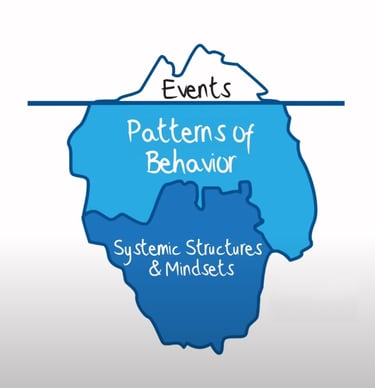Sustainability isn’t just about “going green.” It requires our societies to meet present needs—like income, clean air, water, and decent livelihoods—without undermining the ability of future generations to meet theirs. Sustainability is a governance act of balancing three interconnected pillars: environmental integrity, social equity, and economic viability, which is why political ecology is so critically important.
Decisions about sustainability are never neutral, but reflect who has a voice and who doesn’t. By viewing sustainability through a political ecology lens, we can become attuned to hidden trade-offs (e.g. invisible carbon) and can govern solutions that are truly just and lasting, which then create reinforcing feedback loops.
The Theory of Change in Invisible Carbon is T.E.D.I. using technology as a co-design process with stakeholders to develop experimental interventions that reveal hidden/ invisible trade offs, aiming to bridge a gap between high-level policies and on-the-ground behaviours. In time, T.E.D.I. can set a new standard for how practitioners integrate sustainability, and fill the ecology gaps with modernity and tech competencies that match future realities in After2030.
Note: Some experiments may be open source format, for example hosted on GitHub or similar. Open-source climate experiments are collaborative, transparent investigations where data, models, and code are freely shared. Instead of siloed labs and proprietary tools, anyone—from seasoned researchers to curious students—can contribute, replicate results, and build on each other’s work for an inclusive carbon economy.
Techno-ecological-driven initiatives (TEDI) Method in a Theory of Change


Climate Interactive, n.d.